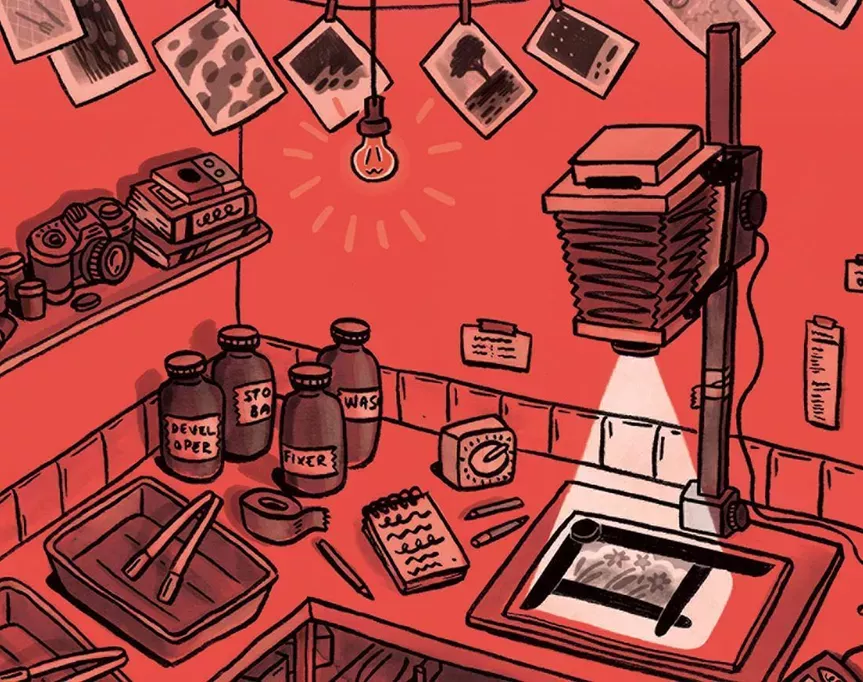right in the feels
Trish O’Loughlin is a highly sensitive person, and proud.
In frankie 89, Trish O’Loughlin ponders the upsides to being highly sensitive.

Snap by Lukasz Wierzbowski.
A few years ago, I had a massive falling out with someone very close to me. I was gutted – I couldn’t eat; didn’t want to leave my bed; and woke every morning dry-heaving into the toilet bowl as I got ready for work. There were regular tears on the phone to my dad, wondering why on earth I was coping so badly. His response? “You can’t help being sensitive.” Of course, I took immediate offence.
I’ve always been a sensitive person. I don’t deal well with confrontation or break-ups; I weep while listening to Sigur Rós. And I’m pretty sure my sensitivity plays a part in those punches of belly-gurgling anxiety that hit me when I’m idly lying on the couch on a Sunday afternoon. For a long time, it seemed like a sign of weakness; an inability to shake off insults like they don’t prick holes in my insides. Sensitivity was a barrier – a great big bulking bollard preventing me from succeeding in life, lest I trip up and damage my poor fragile soul along the way.
But then I met a fellow sensitive lass, who taught me some Very Helpful Things about our breed, and sparked a slow and steady realignment of those misshapen perceptions that had found their way into the deepest, darkest corners of my brain.
First up, being sensitive makes you more in tune with other people’s feelings. It’s like a big old empathy cloak, compelling you to lift someone else’s spirits, just as you’d appreciate your own being lifted. Maybe it even takes you one step further, motivating you to learn about important issues like equality and social justice – any way to champion those little bursts of humanity in the world that can warm even the steeliest of hearts.
I once heard sensitive people described as “cultural barometers”; they feel the pain of others, and subsequently force the rest of the world to turn around and think, “Oh yeah, that’s bad, we should do something about that.” So really, you could say we’re a hugely important category of humans, given oppression and bigotry and other yuck stuff tends to spread faster than mould in a uni student sharehouse.
In fact, some of history’s most influential folks have been given the ‘highly sensitive’ stamp: Martin Luther King Jr., Mother Teresa, Gandhi, Princess Diana. (You know, small names like that.) They shared a rare kind of awareness that made them connect with others on a super-deep level, to the point where they had to do something about the nasty bits of the world – whether that was driving the end of racial segregation in the States; helping people in the poorest parts of India; or using their status to raise awareness for important humanitarian issues. Who knows, maybe they wouldn’t have been such top-shelf legends if they hadn’t cried in the bathtub from time to time.
Sensitivity has also been linked to high levels of creativity, thanks to a heightened perception of the world around us. At times, it can be overwhelming – a crowded train makes you break out in a sweat; the blast of a car horn sends electric jolts through your body – but if channelled correctly, it could lead to some pretty moving and perceptive pieces of art, from head-scratching paintings to tear-inducing tunes or stories that make you stop for a moment and think, “Well, there you go.”
It may sound oxymoronic, but I reckon sensitivity can breed strength, as well. Us highly sensitive people face all the shittiness life throws our way head on, and manage to overcome it, all while wrapped in a thick blanket of feelings. Maybe I can handle more than I give myself credit for – and to all the other sensitive folks out there, with your big hearts and kind souls, I reckon you can, too.















.jpg&q=80&w=316&c=1&s=1)













.jpg&q=80&w=316&c=1&s=1)










